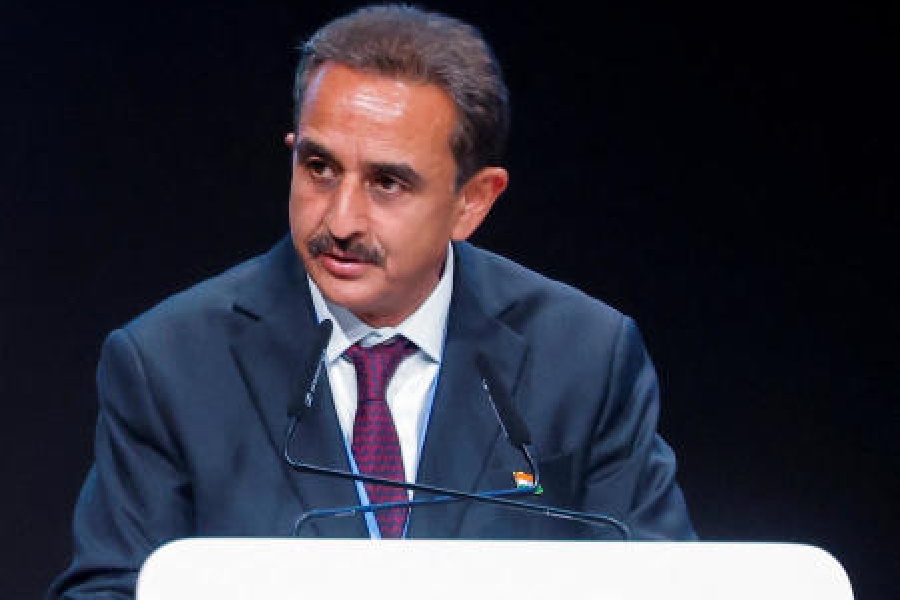Senior environmental officials from India, in consecutive statements at COP29, raised concerns about climate justice, particularly regarding the funding mechanisms and financial commitments being negotiated in Baku.
They also highlighted the need for a “just transition” as countries move away from fossil fuels, with a specific focus on the shift from coal.
While experts vindicate India’s stand, a few observed that India should not use “just transition” as a justification to continue with the high use of coal.
“This is the COP for climate finance — the new collective quantified goals on climate finance (NCQG) for mobilising climate finance for meeting the needs and priorities of developing countries. We all need to appreciate that huge costs are being imposed on a developing country like ours for undertaking climate actions,” said Kirti Vardhan Singh, the minister of state for environment, forest and climate change while presenting India’s national statement during the high-level segment meeting on Tuesday.
The minister added: “NCQG must be founded on the principle of climate justice… the decisions must be ambitious and unambiguous, taking into consideration the evolving needs and priorities of the developing countries, and their commitment to sustainable development and eradication of poverty.”
India has also tried to pressure developed nations by reminding them of their historical responsibility.
“The high carbon emission development pathways of the global north in the past have left very little carbon space for the global south.
However, our growth trajectories for fulfilling the primary needs of sustainable development and poverty eradication cannot be compromised.
“Despite not contributing to the problem, we in the global south are bearing a huge financial burden on account of climate actions for mitigation on the one hand and losses and damages caused by climate change on the other, thus severely limiting our capacity to meet our developmental needs,” read the statement.
The position stressed in the Indian statement is a continuation of its position reiterated a day earlier on the prolongation of coal-related issues, something for which India is being criticised by several developed countries.
India’s environment secretary Leena Nandan at a meeting in Baku said: “Just transition should be just”, observing that India’s interpretation of just transition is broader than the narrow framing of the issue as done by the developed nations.
“Development is the overriding priority for the countries of global south (and) the fact of stark inequality in access to energy, infrastructure, amenities and well-being are not hidden from the world,” said the official, stating that developing countries such as India have per capita energy consumption, which is one-third of the global average, not to compare with the average of developed countries which is much higher.
India demanded that “global dimensions of just transition must be recognised and reflected in the work being undertaken at COP29 in the spirit of international cooperation”.
India also raised questions on the issue of intellectual property rights on green technologies that, according to it, hinder free-and-scalable access to developing countries.
“While the issues that India has raised in the last two days are right, that should not be used as the justification to increase dependence on coal,” said a climate expert from India in Baku.
India has consistently countered the move to completely phase out coal, instead agreeing to a staggered phase-down, and in recent years the Indian government has shown continuing interest in promoting coal.
In Dubai COP, India had stated that it had no immediate plans to shelve coal extraction as it is linked to the developmental needs of millions.
Incidentally, in Deocha Pachami in Birbhum district of Bengal, one of the world’s largest coal mines is about to come up.











